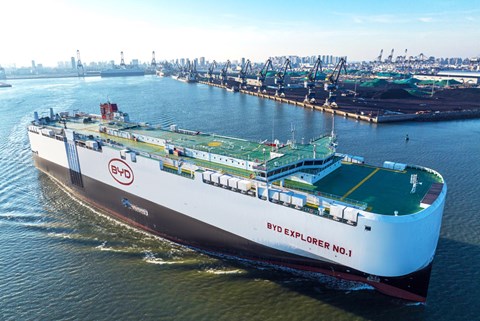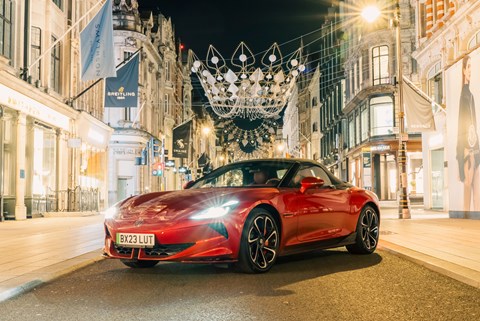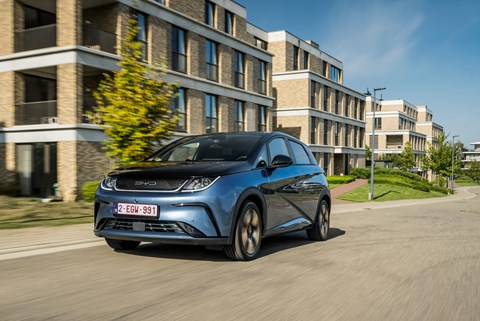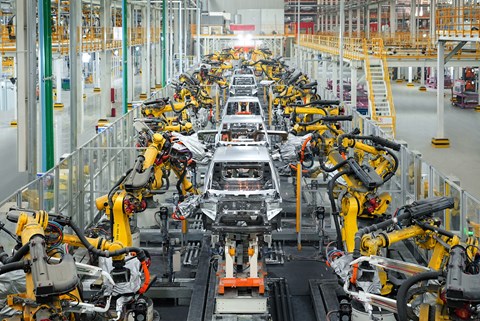► EU’s tariffs on Chinese electric cars
► Member states vote in favour… albeit controversially
► Statement says EU and China still working on alternative
EU Member states have voted in favour of new tariffs to be applied to electric cars coming in from China. Updated duty rates from findings in August 2024 would see up to 36.3 per cent in additional taxes applied to electric cars from certain Chinese car makers.
In a statement, the EU Commission says: ‘the European Commission’s proposal to impose definitive countervailing duties on imports of battery electric vehicles (BEVs) from China has obtained the necessary support from EU Member States for the adoption of tariffs. This represents another step towards the conclusion of the Commission’s anti-subsidy investigation.
‘In parallel, the EU and China continue to work hard to explore an alternative solution that would have to be fully WTO-compatible, adequate in addressing the injurious subsidisation established by the Commission’s investigation, monitorable and enforceable.’
The Guardian reports that 10 member states including France and Italy voted for the tariffs. Meanwhile, five member states voted against the measures, including Germany, and 12 abstained including Spain and Sweden.
Where did this all start?

The EU has been bristling against China’s increase in prevalence in Europe for a few years now, but it came to a head in September 2023. European Commission president Ursula von der Leyen announced an ‘anti-subsidy investigation’ into electric vehicles coming from China.
‘Global markets are now flooded with cheaper Chinese electric cars,’ said von der Leyen during her annual address in September 2023. ‘Prices are kept artificially low by huge state subsidies, and this is distorting our market.’
The European Commission then investigated the matter over several months, and announced its findings and recommendations on 12 June 2024. It had ‘provisionally concluded that the battery electric vehicle chain in China benefits from unfair subsidisation, which is causing a threat of economic injury to EU battery-electric vehicle producers.’ The EU commission had announced provisional increases on tariffs to three major Chinese EV producers: BYD, Geely and SAIC.

After those initial findings, deliberations within the EU Commission produced revised tariff figures in August 2024. Under these updated findings, BYD which sells cars directly here in Europe like the Seal and Dolphin, would be slapped with a 17.0 per cent tariff increase; Geely – which doesn’t directly sell cars in Europe but part-owns Volvo, Polestar and Lynk & Co, as well has a joint venture in new-generation Smart – would be hit with a 19.3 per cent tariff; and SAIC, which wholly owns MG Motor, would be targeted with a 36.3 per cent tariff increase. These tariffs are set to come into force on 4 July.
On top of that, the EU Commission said that, under this prospective tariff increase, would apply to other EV makers. If those car makers ‘cooperated in the investigation,’ they’d be subject to a 21.3 per cent duty. If they didn’t, that duty would increase to 36.3 per cent.

On top of those figures, Tesla doesn’t escape tariffs either given it produces cars in China. The EU Commission announced that it is applying an ‘individual duty rate’ as an exporter from China of nine per cent. The same could apply to ‘any other company producing in China,’ according to the prospective report produced in June 2024.
Why is this happening?
The European Union sees China’s increasing influence on its market as a threat, so it looking for ways to protect European suppliers and producers of cars – particularly EVs. The EU Commission said that its investigation was also designed to ‘examine the likely consequences and impact of measures on importers, users and consumers of BEVs in the EU.’ EU Commission president, Ursula von der Leyen, said in her 2023 annual address that ‘fairness in the global economy is so important because it protects lives and livelihoods – entire industries and communities depend on it.’
The United States is at it, too, as President Joe Biden hiked up tariffs on electric cars from China. In a statement by The White House, the US imposed a 100 per cent tariff rate on EVs ‘to protect American manufacturers from China’s unfair trade practices.’ The move was also designed to protect the US’s investments into developing its own EV manufacturing supply chain.
What has been the reaction to the news?

Not great, obviously. According to Reuters, China has ‘repeatedly called on the EU to cancel its tariffs, expressing a willingness to negotiate.’ The report also points out that China ‘doesn’t want to be embroiled in another tariff war, still stung by the US tariffs on its goods.’
That came after Chinese minister for commerce, Wang Wentao pointed out in a Facebook post that the investigation the EU Commission conducted ‘violated the rules of the World Trade Organisaion,’ and called the tariffs ‘a typical protectionist measure.’
There has been reaction outside the direct line of fire, too. Stefan Hartung, chairman of the board at Bosch, tells CAR: ‘the automotive industry is not a technical one, it’s a consumer one. In the end, consumers decide freely what car they buy.’
‘I’m not a big fan of tariffs – they’re something that impede free trade. Tariffs lead to dangers if they’re increased – they drive inflation and interest rates and could lead to situations where things are done twice. That’s simply not efficient and goes against the efforts to fight climate change.’
‘The introduction of tariffs and taxation are common considerations for any international business operation to navigate,’ an Xpeng spokesperson told CAR. ‘Regardless of tariff fluctuations, Xpeng remains dedicated to enhancing the appeal of our products and services through ongoing innovation and optimisation. We are committed to proactively maintaining market competitiveness while minimising any potential impact on our current and future customers.’
The automotive industry has also been busy with methods to potentially circumvent any changes in stance that the EU and China may have. BYD, for example, announced at the end of 2023 that it would build a plant in Hungary.
How will this affect me?
The short answer is that, if these tariffs go through, the cost of cars coming into Europe will increase. How much that extends to the UK, given it’s not part of the EU single market post-Brexit, isn’t entirely confirmed but may still have an impact.
For Europe, though, these tariffs could drastically change the prices of electric cars coming from China – provided they go ahead unchallenged or unaltered.